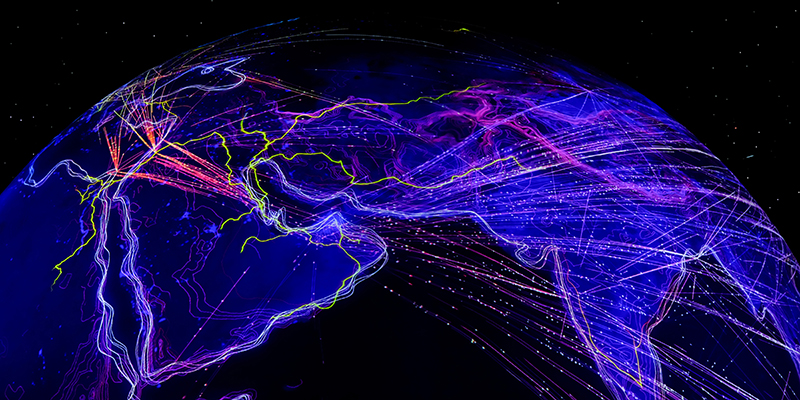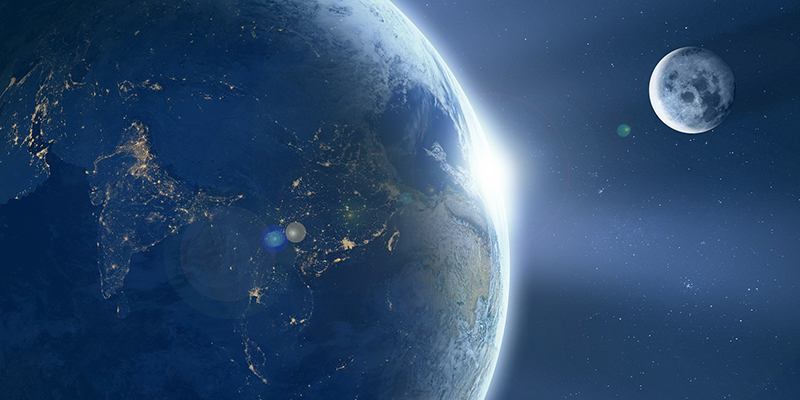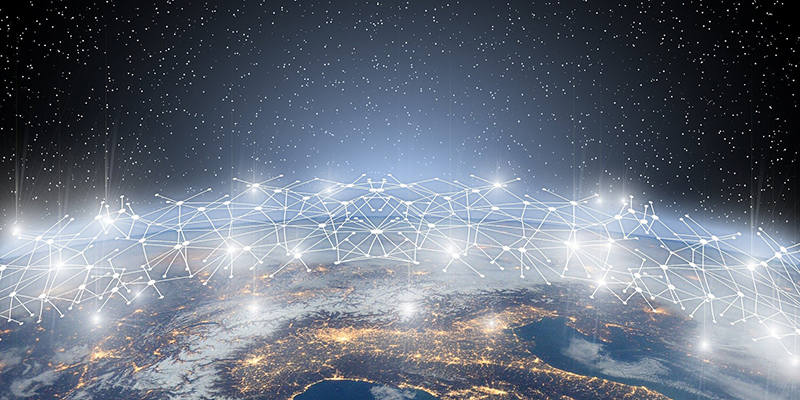Innovation in Security: Unveiling the Pioneering Projects of the 2023 GCSP Prize for Innovation in Global Security

Innovation in Security: Unveiling the Pioneering Projects of the 2023 GCSP Prize for Innovation in Global Security
The recipients of the 2023 GCSP Prize for Innovation in Global Security are as follows:
- First place: “Measuring Norms in Outer Space: ITU Compliance Assessment Monitor (ITU-CAM)”, by Mr Thomas González Roberts, Massachusetts Institute of Technology / Center for Strategic and International Studies, USA
- Second place: “Global Security and Justice: CEXAL LTD's Accurate and Portable Water Testing Kits for Disease Prevention of Water-borne Pathogens”, submitted by Dr Praveenkumar Kaveri, Mr Matteo Cese, Mr Kush Rustagi, Mr Maarten v.d. Ancker and Mr William McKenny, CEXAL LTD, United Kingdom
- Third place: “Environment of Peace Initiative” submitted by the Stockholm International Peace Research Institute (SIPRI), Sweden
The 2023 GCSP Prize for Innovation in Global Security celebrated three outstanding security projects during its virtual award ceremony on December 5, 2023, coinciding with GCSP Innovation Day. The ceremony marked the culmination of the GCSP's efforts to identify and honour this year's most inventive, inspirational, and ground-breaking security initiatives.
From an impressive pool of 153 projects meticulously evaluated by the GCSP, three projects stood out as exemplary after an extensive selection process. These finalists emerged from a competitive shortlist of 15 shortlisted projects, all subject to thorough scrutiny by the prize jury.
Mr Thomas González Roberts stated:
“I am thrilled to accept this year’s Prize and be a part of the GCSP’s legacy of scholarship in outer space security. As my colleagues at the GCSP know well, space systems in the geosynchronous orbital regime are critical contributors to global security, offering protected military communications, missile early-warning, and nuclear command and control, among other key services. Today’s special recognition from the GCSP directly supports our shared vision for a more peaceful and secure outer space domain. Thank you."
The project in second place, “Global Security and Justice: CEXAL LTD's Accurate and Portable Water Testing Kits for Disease Prevention of Water-borne Pathogens”, submitted by Dr Praveenkumar Kaveri, Mr Matteo Cese, Mr Kush Rustagi, Mr Maarten v.d. Ancker and Mr William McKenny of CEXAL LTD, UK, uses an innovative technology which seeks to replace time-consuming laboratory testing with cutting-edge biosensor technology. Their user-friendly, portable, and rapid test kits make it possible to swiftly detect waterborne pathogens in water. This technology eliminates the 24-48 hour wait time of traditional methods, offering a 30-minute assay and reducing costs from over £ 50 to an affordable £ 10. This solution has the potential to markedly enhance global security by providing immediate, cost-effective, and accurate water testing, especially beneficial for disaster relief, military bases, and humanitarian missions.
Mr Matteo Cese declared:
"I am deeply honoured that our biosensor technology has been awarded by GSCP. This recognition strengthens our commitment to making a tangible difference in the world, one test at a time. Looking to the future, we are hopeful that the GSCP award will open doors to new markets and communities, thereby amplifying its impact on a global scale.”
The project in third place, the “Environment of Peace Initiative” submitted by the Stockholm International Peace Research Institute (SIPRI) in Sweden, was launched with the aim of advancing understanding regarding the intricate links between climate change, environmental degradation, and international peace and security. The flagship report, titled 'Environment of Peace: Security in a New Era of Risk,' was unveiled at the Stockholm Forum on Peace and Development in May 2022. Following this, in December 2022, the comprehensive research report, delving into four distinct aspects of the interconnected crises, was published. Over a span of two years, a diverse team of 30 global researchers, practitioners, and youth collaborated to synthesize evidence and explore pathways forward. The initiative highlights the interconnections of environment, peace, and security on local, national, and global scales, extending beyond climate change to analyze various environmental crises. Emphasizing both risks and opportunities associated with the green transition, the initiative contends that well-executed climate action can mutually support peacebuilding and vice versa.
Ms Claire McAllister, Head of Environment of Peace initiative, stated:
”I am honoured to accept this prize on behalf of everyone that worked on the Environment of Peace initiative. This was truly a team effort to explore and explain how climate change and environment degradation are affecting every aspect of our peace and security. The report shows that we need to urgently address the root causes of these environmental crises as well as manage the risks as they occur. Most importantly it points to the opportunity for climate action – if done well – to contribute to a more just and peaceful world.”
The jury for the 2023 GCSP Prize for Innovation in Global Security included:
- Ambassador Gabriel Lüchinger, Head of the International Security Division at the FDFA State Secretariat in Bern
- Lt General (Retd) André Blattmann, Former Chief of the Swiss Armed Forces
- Ms Angela Kane, Senior Fellow at the Vienna Centre for Disarmament and Non-Proliferation
- Professor Jane Royston, Entrepreneur and member of the Swiss Science Council
- Ms Lauren Anderson, Founder and CEO of LC Anderson International Consulting and former FBI Executive
- Professor Nayef Al-Rodhan, Director of the Geopolitics and Global Futures Department at the GCSP and Honorary Fellow at St Antony's College, Oxford University
- Ambassador Thomas Greminger, Executive Director of the GCSP
The GCSP Prize for Innovation in Global Security is an annual event and will issue a call for the submission of projects for the 2024 award in Spring 2024.



